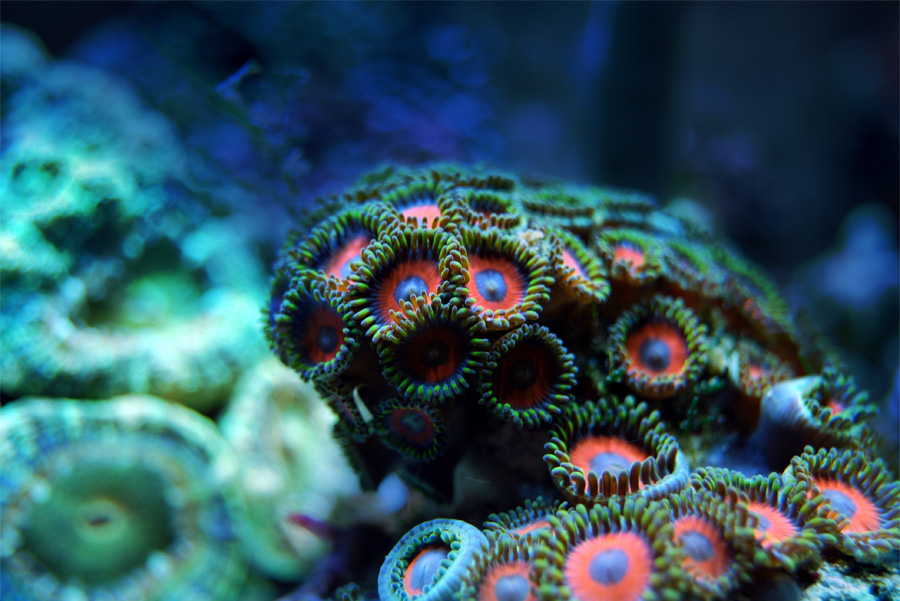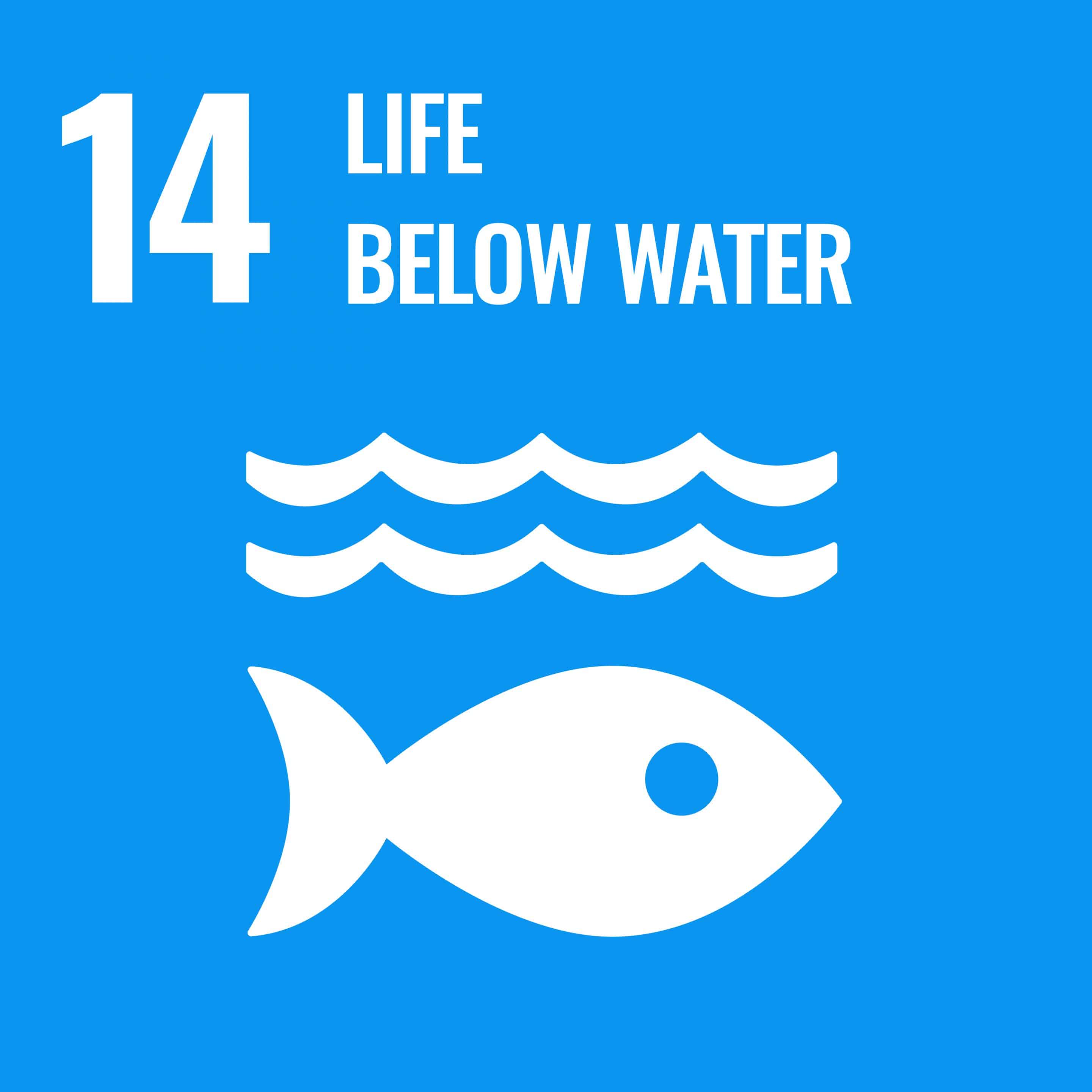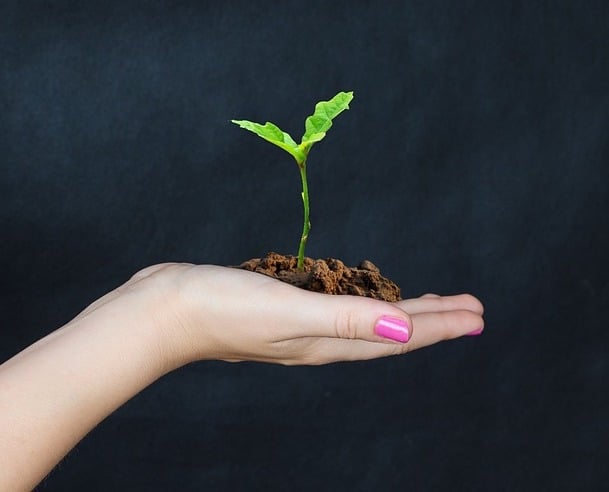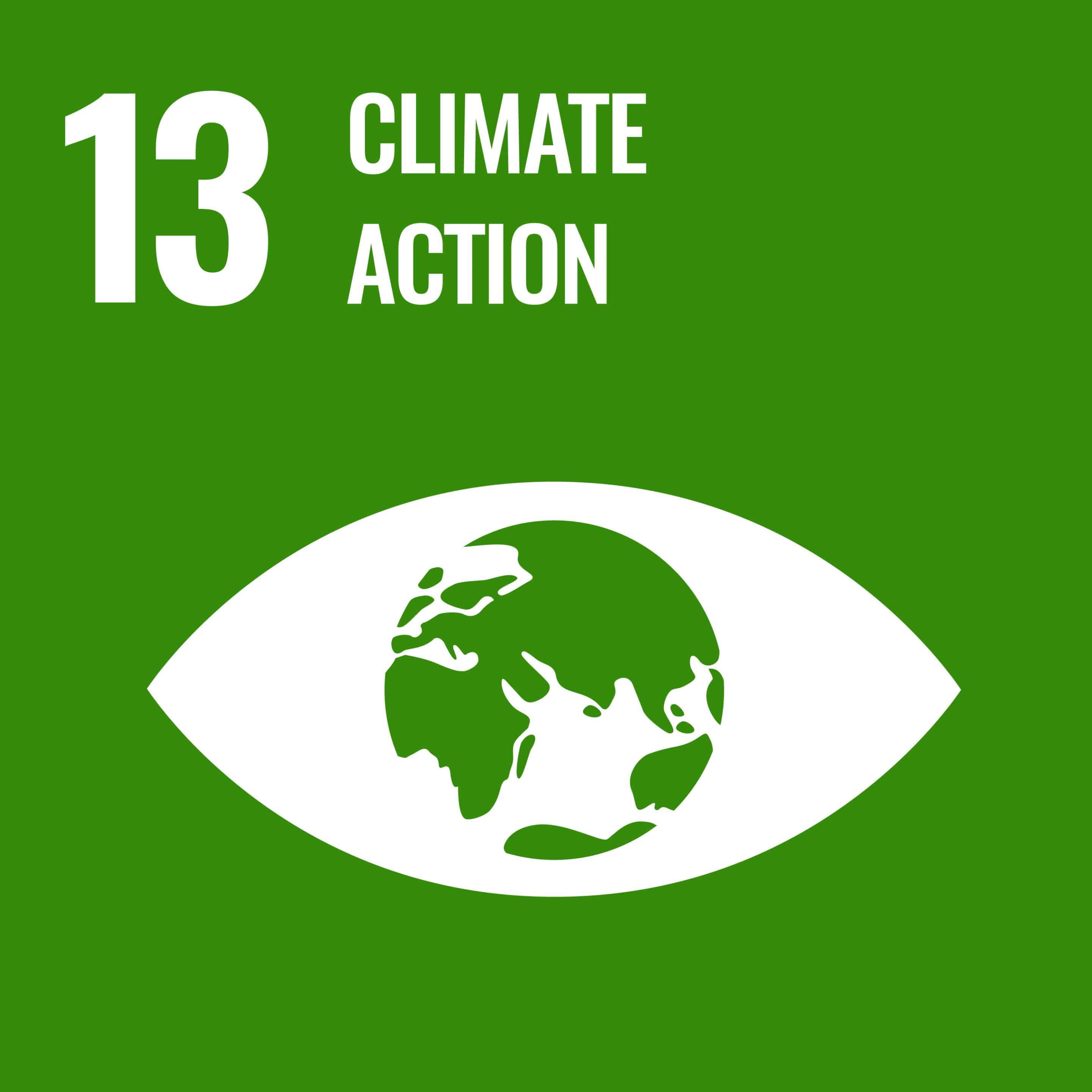Biosphere
Let's make the world a better place for all of us
14 – Life below water
Pollution, overfishing, global warming. All these factors harm aquatic life. In both fresh and salt water, they cause problems in biodiversity and disrupt ecosystems. Especially in seas and oceans, this has a big impact because saltwater comprises such a large part of the earth's surface. And let that be one of the most fundamental ecosystems that sustain us as humans. In fact, they provide 50-80% of the Earth's oxygen.
In the Netherlands it's part of our traditions to eat fat herring. The North Sea is also a notorious target for overfishing. In the last couple of years more attention is being paid to restoring this ecosystem through new fishing methods and maintaining biodiversity through moderate fishing. But also pollution water in and around the Netherlands by chemicals coming
from industries such as construction or manufacturing plants pose a danger to rivers, lakes and the North Sea. It is essential that as many companies as possible develop bio-based products so that toxins used in these products do not have a chance to end up in nature.
In cooperation with the province of Limburg, we are turning the inland ports of Limburg into sustainable logistic centers. Within the Brightlands campus, the province is developing a knowledge center for sustainability, including making logistics processes sustainable. In this knowledge center, alternative solutions and cross-sector connections are being researched. Brightlands is researching and developing new methods of producing and assembling products in order to reduce the emission of toxic substances into nature. IBI² helps develop bio-based materials.
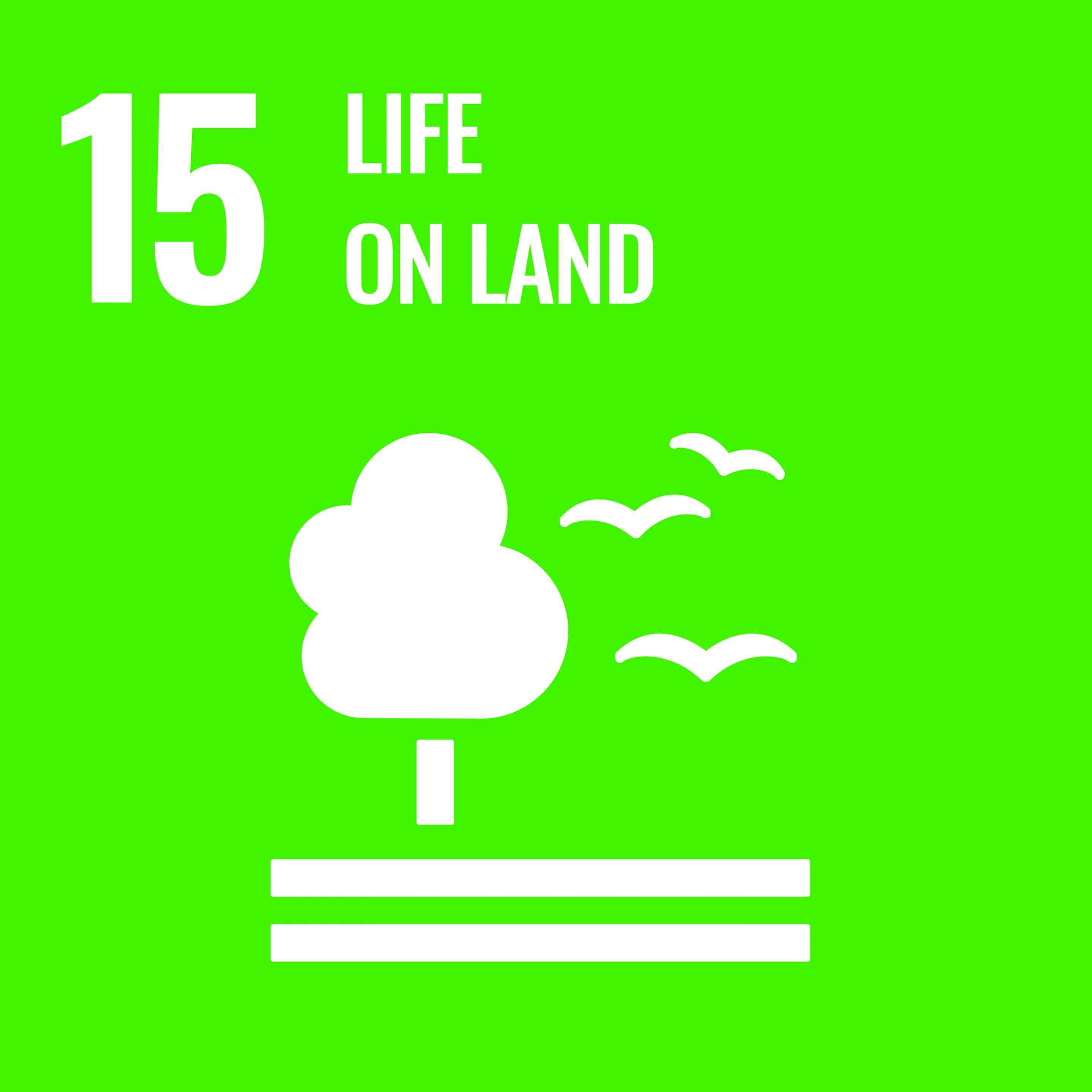
15 – Life on land
Alanis Obomsawin once said, "When the last tree is cut down, the last fish eaten and the last stream poisoned, you will realize that you cannot eat money." This is a sad fact that forecasts the future of an unimaginable reality. Yet it is the mindset of many. Humans need the earth and the ecosystems that function on it to survive, but not everyone understands and feels that. The way we treat our planet has a profound effect on biodiversity worldwide, and thus on the health of us all. Protecting life on the land requires agreements and guidelines described in SDG 15.
The nitrogen crisis has been in full swing for some time. In the Netherlands, there have been sweeping requirements for nitrogen emissions in the construction and agricultural sectors, among others. Despite differences of opinion, it is essential for ecosystems in the Netherlands (and the rest of the world), that the amount of nitrogen emitted will be reduced to a healthy level in which biodiversity can flourish.
IBI² is currently in cooperating with the BAM Group to develop bio-based products to replace nitrogen producers such as concrete and cement. The amount of alternatives for materials we use in this economy due to convenience and cost effectiveness is rapidly increasing. IBI² is at the forefront as a driver of a zero-emission economy. Everyone needs to get on board. Are you ready?
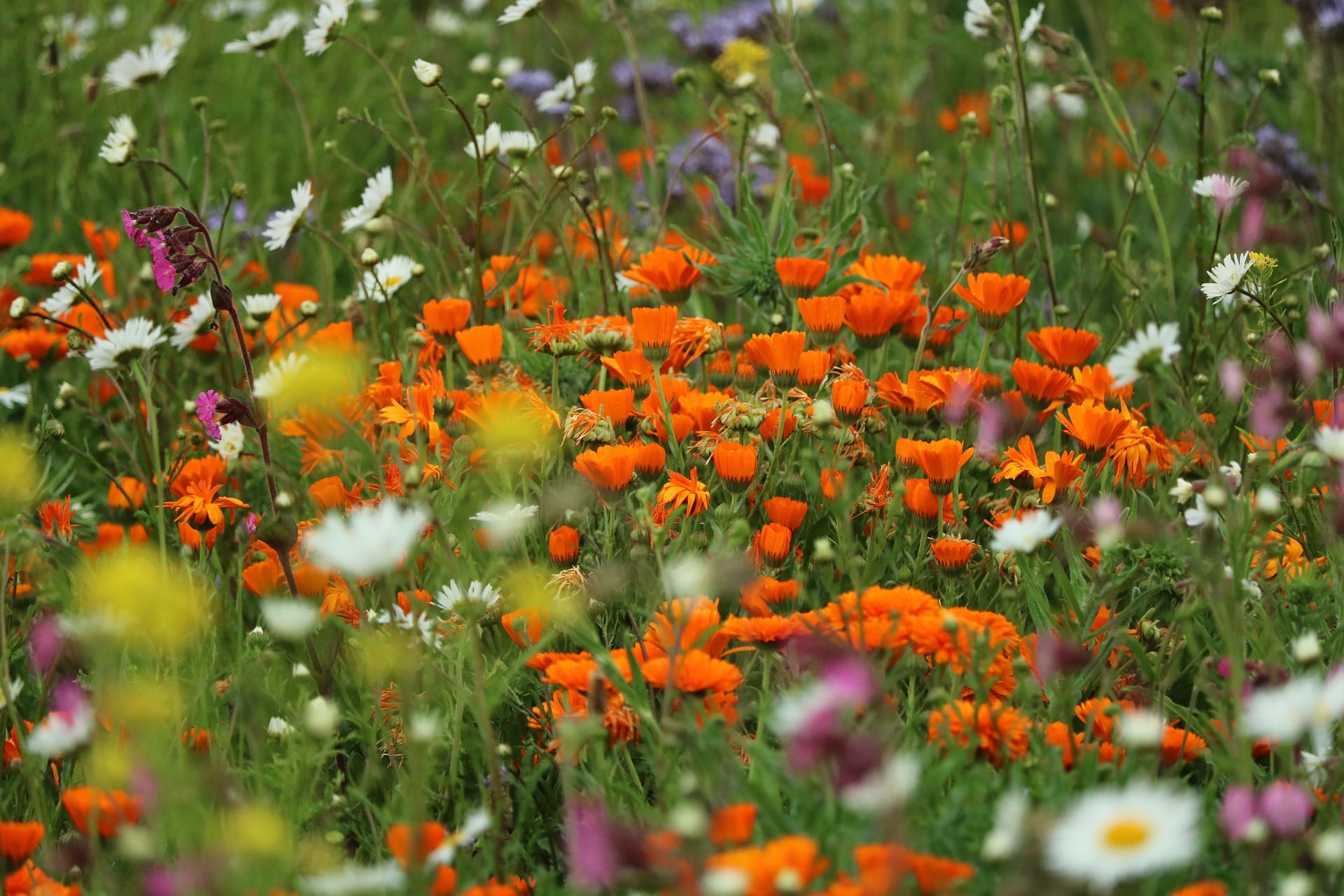
Land van Ons
At Land van Ons (Land of Ours), you can invest in a biodiverse future. The cooperative manages land bought by participants (crowdfunded) and provides nature-friendly management. In this way, it's possible to achieve biodiverse agricultural systems. Not only does it make these farmlands more resilient, but it also contributes to cleaner air and effective water management, among other things. Read more about the operating procedure. IBI² also bought a couple of square feet. It's a small contribution, but together we stand strong. We share this vision with Land van Ons. Click here to participate.
13 – Climate action
Everyone feels the impact of climate change, consciously or unconsciously. It is the responsibility of every person on earth to contribute to a better world. Especially people in the most developed countries, because the poorest and most vulnerable countries will be the first major victims of climate change.
Europe has set itself the goal of reducing emissions to 30% by 2030 and 60% by 2040. Achieving this goal requires an increasingly emission-free industry and society, in which banning fossil fuels and promoting clean energy is key.
In the Rhombus sustainable (Blueports) project, the inland ports of Limburg are being innovatively overhauled and reformed. Everything revolves around making transport and logistics processes more efficient. This is how we make CO² reduction possible. For more info visit circulairports.com.
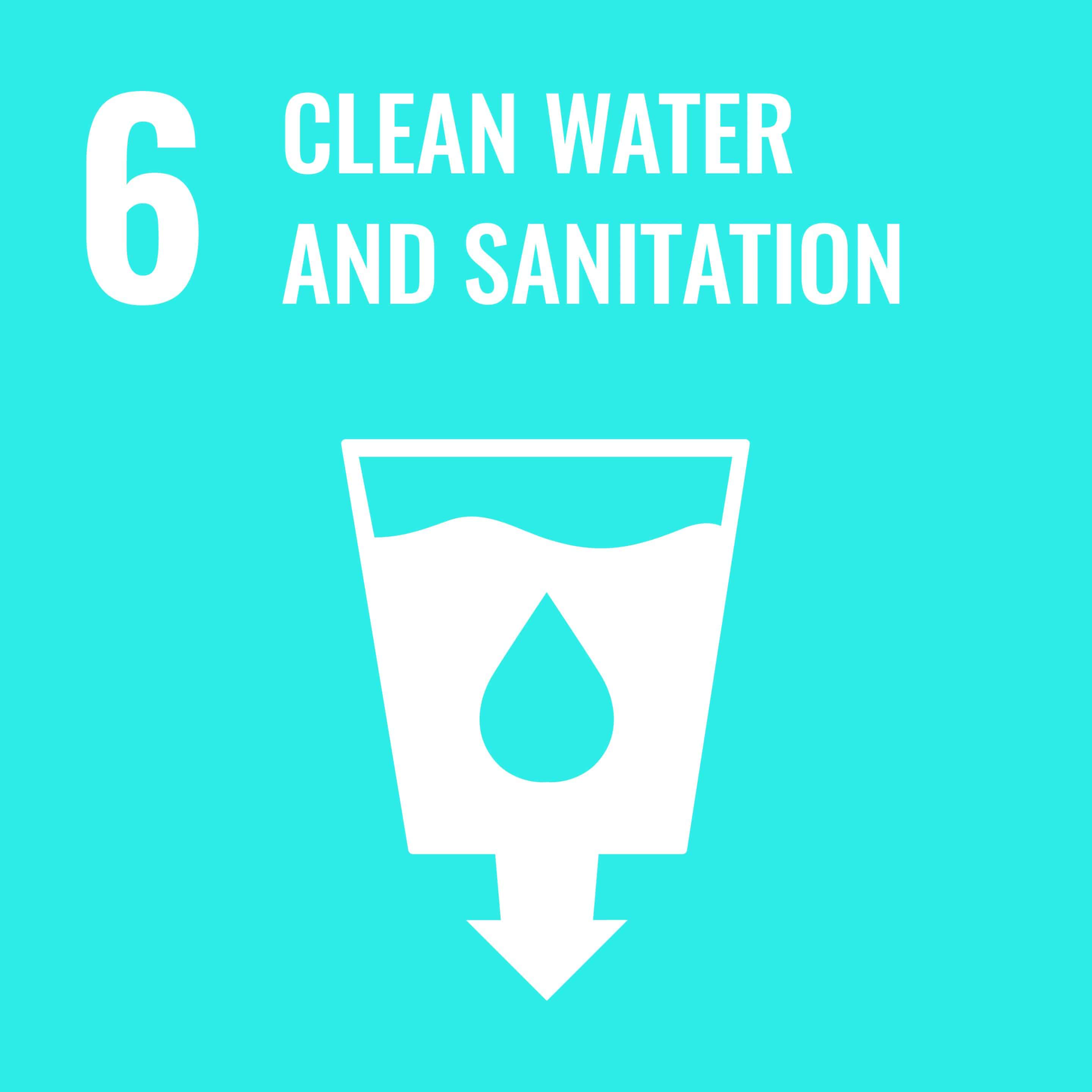
6 – Clean water and sanitation
Our clean water flows out of the tap. A strong arsenal of water boards sanitizes the water coming from sewers and rivers. Yet in many countries this is still not self-evident. It is not given that water can be purified after being frequently polluted. And that while clean water is the foundation for sustainable development. Among other things, it can contribute to reducing poverty and economic growth.
In the Netherlands, it is important to use water in a sustainable and efficient way. This includes combating water waste with the use of rain barrels, for example, or smart systems that flush toilets with "used" water from showering or washing hands.
IBI² contributes to SDG 6 by partnering with companies to develop sustainable and organic materials where chemicals are a no-go. This reduces the amount of polluted water coming from industries such as construction and others that use materials that interact with the elements.

